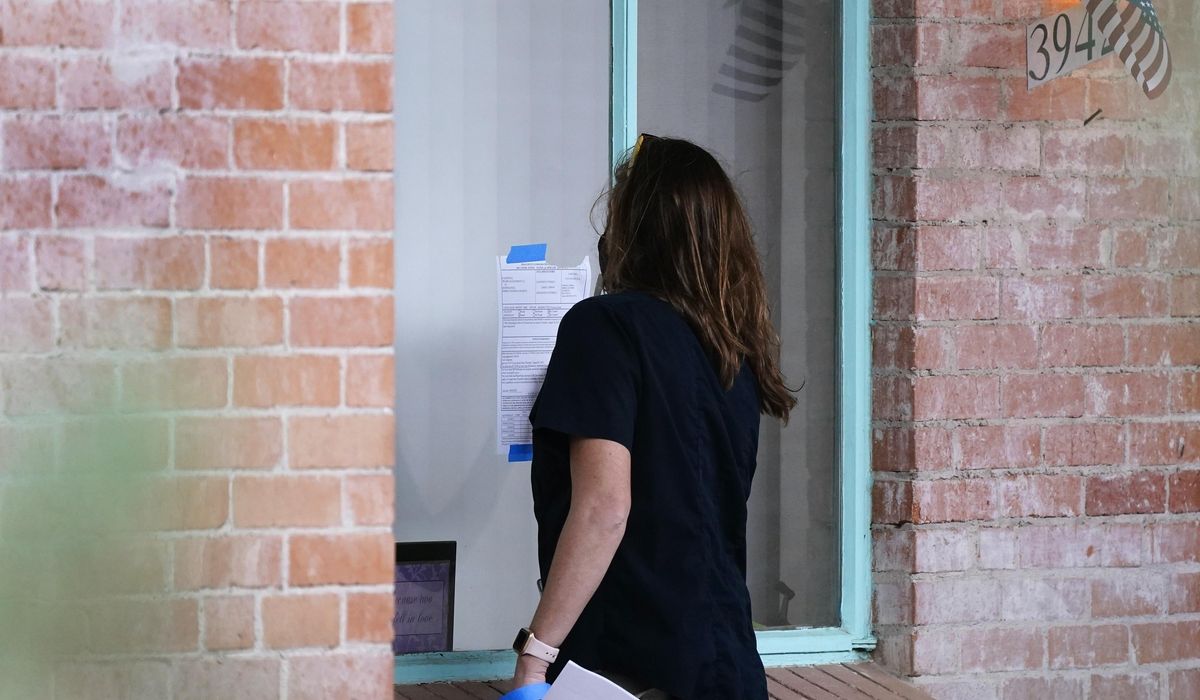


Legislation now in the House hopper would end a pandemic-era federal regulation that required landlords to provide tenants with 30 days’ notice before starting eviction proceedings.
Rep. Barry Loudermilk put forth the Respect State Housing Laws Act, a bill he first introduced in the 117th Congress, as a means to correct a legislative drafting error that made permanent an intended temporary provision in 2020 pandemic relief bill known as the CARES Act.
The legislation strikes the 30-day provision that was part of a longer eviction moratorium during the COVID-19 shutdowns.
“This federal overreach in the eviction process has caused immeasurable suffering for veterans, retirees and families who depend on rental income to make ends meet,” said Mr. Loudermilk, Georgia Republican.
He called the bill “a critical step in easing that burden by simply removing the federal government from the equation, and returning housing policies back to the states, where they should be — and were for decades before the pandemic. It’s time we let this unnecessary provision expire.”
The federal moratorium expired on July 25, 2020. Many judges across the country took the stance that the 30-day notice to vacate was still in effect, though other state courts took the position that it is no longer in effect.
As a result of the different interpretations of the eviction provision, a coalition of housing associations sent a letter to Congress calling for a formal ending of that CARES Act measure.
“Unnecessary and duplicative federal intrusion into complex state and local law amplifies the financial and operational challenges housing providers across our country continue to face,” said Robert Pinnegar, president and chief executive officer of the National Apartment Association. “With 93 cents of each rent dollar paying the bills that keep rental housing operational, prolonged disturbances to standard operating procedures have major implications.”
Sharon Wilson Géno, president of the National Multifamily Housing Council, said that during the pandemic and its aftermath, housing providers and residents have navigated immense challenges that federal intervention only worsened.
“The legal process for addressing lease violations and non-payment of rent is well established at the state and local levels. Evictions are detrimental to both housing providers and residents,” Ms. Géno said. “Federal oversight causes confusion that ultimately harms residents and housing providers alike and limits housing affordability and availability.”
For more information, visit The Washington Times COVID-19 resource page.
• Kerry Picket can be reached at kpicket@washingtontimes.com.
